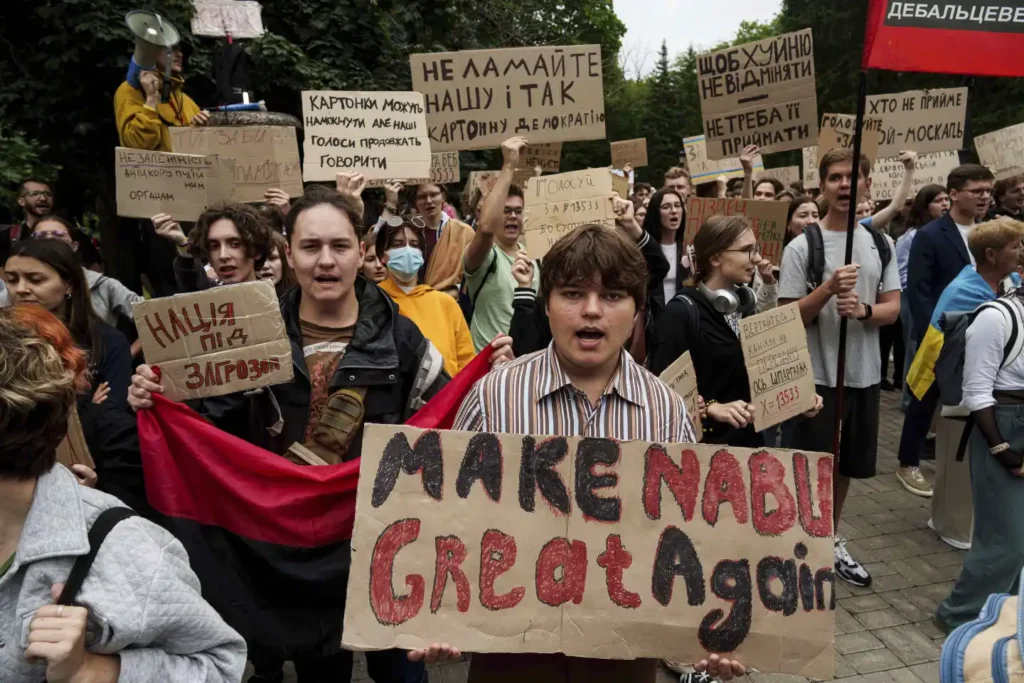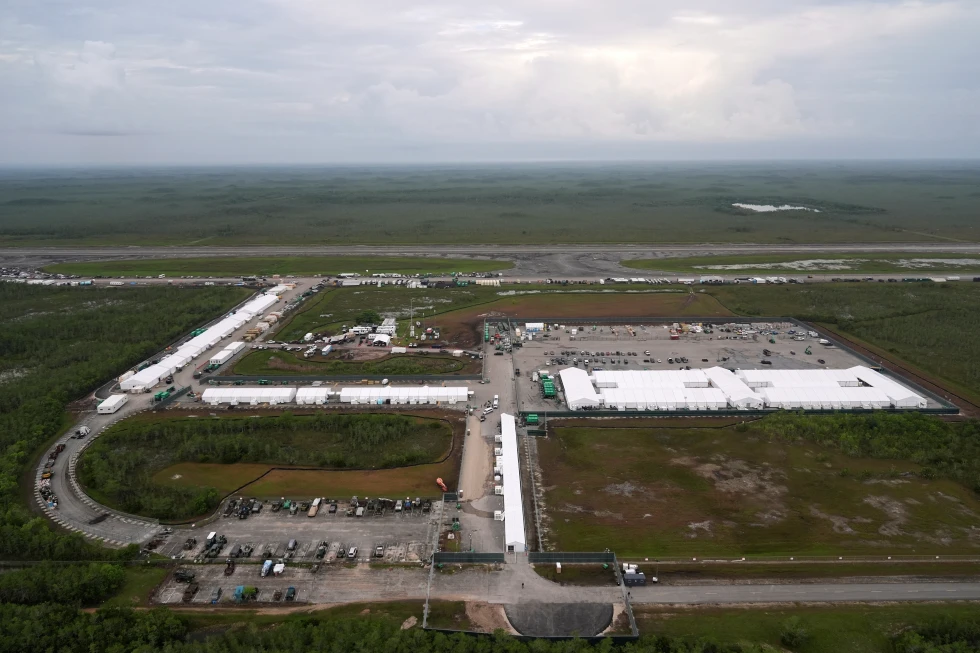Zelenskyy Anti-Corruption Law Reversal Fails to Restore Trust

Trust in Zelenskyy Dips Despite Reversal of Controversial Anti-Corruption Law
KYIV, Ukraine (AP) — President Volodymyr Zelenskyy swiftly reversed a law last month that weakened Ukraine’s anti-corruption agencies. However, the damage to his credibility may prove harder to undo.
The president’s move came after massive public protests in Kyiv and other cities. Many Ukrainians viewed the law as a step too far, even during wartime. Until now, the public had tolerated restrictions like martial law and suspended elections in support of the war effort.
But trust in Zelenskyy’s leadership is now under scrutiny.
“People will support Zelenskyy in whatever he does for the war,” said Tetiana Shevchuk of the Anti-Corruption Action Center. “But the previous level of trust is damaged. He’ll need to work hard to get it back.”
Public Opinion Turns
Recent polls underscore the shift in public sentiment. A Gallup survey shows Zelenskyy’s job approval has fallen from 84% in 2022 to around two-thirds in July 2025. Another poll from the Kyiv International Institute of Sociology reveals a similar drop in trust, especially after the anti-corruption bill passed.
Both polls excluded areas under Russian occupation or control.
The decision to limit the powers of the National Anti-Corruption Bureau (NABU) and the Specialized Anti-Corruption Prosecutor’s Office (SAPO) triggered backlash at home and abroad. One European foreign minister told AP that Zelenskyy’s reversal would help “restore lost trust.”
Zelenskyy Cites Russian Influence
Zelenskyy claimed the bill aimed to root out Russian influence within anti-corruption agencies. However, he did not provide clear evidence. Lawmakers said they had little time to read the legislation before voting.
The president’s inner circle has faced repeated allegations of corruption. Recent scandals involved his close allies, including:
-
Oleksii Chernyshov, ex-Deputy Prime Minister, was named a suspect in a high-profile land case.
-
Tymur Mindich, a businessman and longtime friend, faces a formal investigation tied to drone contracts.
“People are united behind the president for the war and international support,” Shevchuk said. “But they also see what’s happening with his allies. It doesn’t go unnoticed.”
The Power of Protest
The July protests were the largest in years. Thousands rallied to demand transparency and accountability, signaling that Zelenskyy’s wartime authority has limits.
“It’s not just one law. It’s a buildup of frustration,” Shevchuk added. “The people reminded the president: We see everything. We don’t want you to protect corruption.”
Ukraine’s history of protest, especially the Euromaidan movement of 2013–14, continues to shape public expectations. That uprising led to the ouster of a pro-Russian leader and fueled a zero-tolerance attitude toward corruption.
Parliament Pushes Back
Lawmakers now say they will no longer blindly support bills from the president. Previously, legislation backed by Zelenskyy sailed through Parliament with minimal resistance.
“I voted because it was the president’s decision,” said MP Oleksandr Merezhko, “not because I had time to read the bill.”
He noted that Zelenskyy acknowledged communication failures. “There should have been dialogue,” the president told reporters on July 24.
Since then, Parliament passed a new bill restoring the independence of the NABU and SAPO. “People asked for change. We responded,” Zelenskyy said.
International Reaction
The backlash extended beyond Ukraine. British Prime Minister Keir Starmer and German Foreign Minister Johann Wadephul both expressed concern. Starmer stressed the importance of independent institutions, while Wadephul welcomed the reversal as a “necessary step.”
Meanwhile, President Donald Trump—who often comments on foreign policy—remained silent on the matter.
Ukraine’s bid for European Union membership hinges partly on progress in anti-corruption reform. The swift policy reversal may have prevented lasting diplomatic fallout.
: 227







